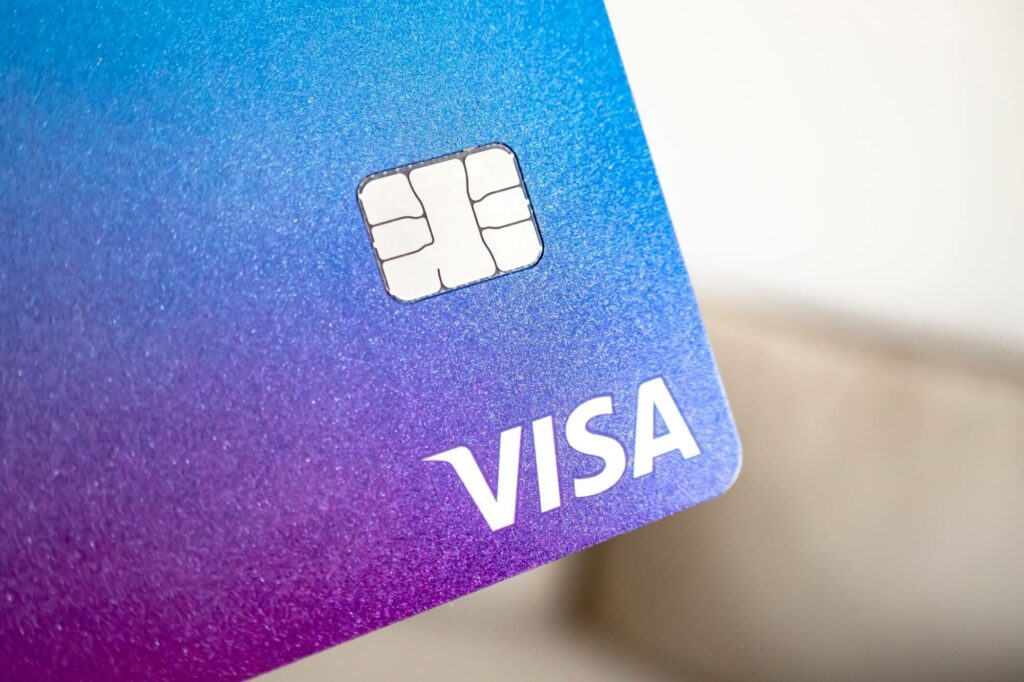Visa, the largest global payment system, is making changes to its approach towards surcharges in order to be more stringent towards merchants who impose additional fees on customers using credit cards. In recent months, Visa has reduced the amount that retailers can charge customers when they use Visa cards. Additionally, the company has started conducting on-site inspections to ensure that stores are following its guidelines when implementing these surcharges.
Visas adjustments are in response to concerns raised by businesses that are facing financial strains due to the fees associated with accepting electronic payments from banks. As a result, many of these businesses have resorted to implementing interchange fees on card transactions as a way to offset these expenses. Let us understand how this Visa surcharge crackdown will impact small businesses.
Key Takeaways On Visa Surcharge Crack Down On Businesses
- Visa’s Surcharge Regulations: Visa, a known credit card company is introducing rigorous policies regarding surcharges. This decision comes after businesses expressed their concerns about the burden of interchange fees. Visa is committed to maintaining limits on surcharges to ensure an experience for consumers amidst debates about interchange fees.
- Enforcement Challenges for Merchants: The increased enforcement of surcharge regulations by Visa has met resistance from merchants and processing companies alike. While some merchants initially implemented surcharges many have reconsidered due to the impact it had on customer experience.
- Legislative Landscape: Pending state and national surcharge legislation spans Kansas, Minnesota, New York, and Massachusetts. New Jersey and New York have enacted laws limiting surcharges, compelling merchants to disclose total credit card usage costs. Non-compliance can result in penalties, indicating a shifting regulatory landscape affecting businesses.
- Impact of Interchange Fees and Surcharges: Interchange fees have been increasing significantly with Visa and Mastercard setting the rates while banks collect the fees. Although these costs may seem small per transaction they have doubled over time reaching $160.7 billion annually. Surcharges have become a practice for businesses across different industries as they help offset the expenses related to credit card transactions. By implementing surcharges according to practices merchants can effectively navigate the challenges presented by the evolving payment industry.

Visa’s Surcharge Regulations And Enforcement: A Look At The Implications For Merchants
Visa is widely recognized as among the most popular and accepted credit cards worldwide. Cardholders appreciate its reliability and secure payment transactions. And like any other card network, Visa charges interchange fees for each transaction made with their cards. This fee can vary depending on the type of card, data level, merchant category code, and more.
To ensure a more affordable experience for consumers Visa is encouraging merchants who accept Visa credit cards to adhere to a limit on surcharges. This move by Visa comes amidst a disagreement over interchange fees referred to as swipe fees. While merchants strive to keep these fees in control, Visa asserts its right to increase them. Surcharges come into play when merchants aim to recover the costs associated with interchange fees by adding a charge for customers using credit cards. Visa emphasizes the importance for merchants to abide by this surcharge limit in order to safeguard the consumers’ experience.
Last year, Ryan McInerney, Visa’s CEO, acknowledged that they are not thrilled about customers facing surcharges. However, he pointed out that merchants have the authority to impose such charges in specific US jurisdictions and other places worldwide, and some opt to do so. He further said that many merchants initially adopted this practice but later retracted it due to its negative impact on the customer experience, even though they must adhere to Visa’s rules regarding additional charges.
This alteration did not sit well with numerous sales agents and processing companies providing intermediary services for merchants processing credit card transactions. Some have gone on with legal action on this matter. However, many small businesses admit to having limited options when it comes to opposing Visa, the largest card network company in the U.S.
To expand its reach, a memo from the Priority Payment Systems division, which handles credit card payments in partnership with ISOs, highlighted Visas’s commitment to enforcing credit card surcharge regulations. Payment processors were explicitly informed that adherence to these guidelines would be closely monitored, and failure to comply could lead to fines ranging from $500,000 to $1 million.
The memo has conveyed that Priority and its sponsor banks follow card brand regulations. It has been noted that Visa is increasing its efforts to tighten its grip on the Surcharge Rules. To shield your affiliated merchants from fines imposed by card brands for non-compliance, conducting a comprehensive review of existing and new surcharge programs linked with your merchants is strongly recommended.
A Closer Look At Pending Legislation And Recent State-Level Developments

Throughout the country, state and national legislation concerning the surcharges merchants can levy on card transactions from Washington to North Carolina are pending. The organization responsible for tracking state legislation has identified six states where such legislation is currently marked as “pending” this year. However, much of it consists of bills introduced in the previous year, now carried over into the current legislative session. These states include Kansas, Minnesota, New York, and Massachusetts.
At the state level, New Jersey and New York have recently enacted laws compelling merchants to limit surcharges, ensuring that these charges do not surpass merchants’ costs for processing transactions.
Kathy Hochul, Governor of New York, recently approved the new law that restricts merchants in the state from imposing credit card surcharges exceeding the amount charged by the credit card company for each transaction. The law mandates merchants to disclose the total price for credit card usage, explicitly and prominently stating the surcharge amount. Non-compliance with these regulations can result in merchants facing a penalty of $500 per violation.
Surge In Interchange Fees And The Pervasive Adoption of Surcharges: Impacts on Businesses and Consumers

The focal point of the discussion revolves around interchange fees. While Visa and other processors like Mastercard establish the rates for these fees, the banks issuing the cards retain the majority of the fees. Despite often being just a few cents per transaction, these costs have increased in recent years due to the growing use of credit cards, which generally carry higher interchange fees than debit cards. The combined debit and credit card swipe fees have more than doubled in the past decade, reaching $160.7 billion annually. These fees translate to an average cost of over $1,000 annually for the typical American family.
The reliance on surcharges is not limited to small businesses; an expanding number of enterprises that traditionally received payments via checks or direct bank transfers, such as general contractors, lawn care, and consultant providers, are now implementing surcharges to offset the expenses associated with accepting credit cards.
For many merchants, the option to surcharge has become a prerequisite for accepting cards. When executed following established best practices, surcharging can serve as a viable means for numerous merchants to start accepting cards for the first time.
About Visa
Visa Inc. is a payment technology company in the United States and internationally. The company oversees VisaNet, a network that processes transactions by authorizing, clearing, and settling payment activities. In addition to providing debit, credit, and prepaid card products, Visa offers services like contactless (NFC), click-to-pay, and tokenization. Visa Direct, another solution by the company, facilitates the efficient delivery of funds to eligible cards, digital wallets, and deposit accounts.
Visa Inc. extends its reach with services like Visa B2B Connect, a multilateral cross-border payments network for businesses, and Cross-Border service, focusing on consumer payments across borders. The company’s DPS (Data Processing Services) arm offers various value-added services, including dispute management, fraud mitigation, campaign management, data analytics, digital solutions, and contact center services.
Visa Inc. operates under various brand names, such as Visa, Interlink, Visa Electron, PLUS, and V PAY. Its clientele includes merchants, financial institutions, and government entities. Established in 1958, Visa Inc. is headquartered in California.
Conclusion
Visa’s recent crackdown on businesses implementing surcharge programs reflects the ongoing challenges within the payment industry. As Visa, a global credit card giant, tightens its policies and conducts on-site inspections, merchants grapple with the financial strain of interchange fees. The critical takeaway emphasizes Visa’s commitment to maintaining a positive consumer experience, urging merchants to adhere to set limits on surcharges. However, this move has faced resistance from some merchants and processing companies, who are also grappling with the profits and are tied to imposing the charge onto the customers.
Meanwhile, the surge in interchange fees continues to impact businesses and consumers alike, with fees doubling in the past decade. The reliance on surcharges, once limited to small businesses, has expanded to various enterprises seeking to offset the rising costs of credit card transactions. As the industry grapples with these changes, merchants must carefully navigate the evolving regulations to ensure compliance and protect their businesses from potential fines.

